SMALL BUSINESS ECOSYSTEM BUILDERS
ACROSS THE GLOBE
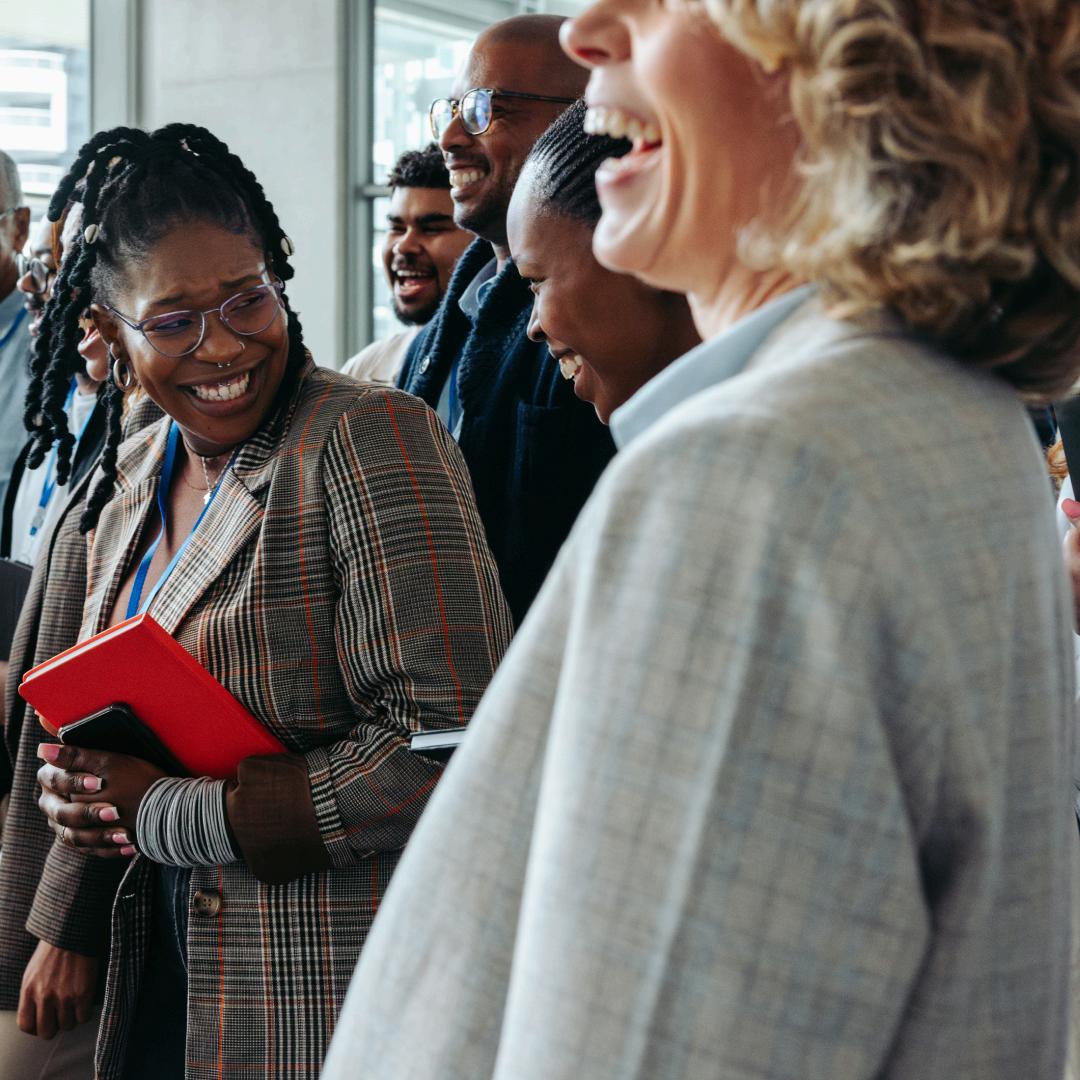
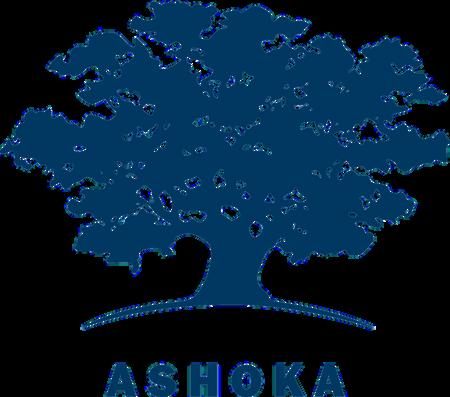





All over the world, small businesses are the building blocks of local communities – they offer entrepreneurial and leadership opportunities to community members, infuse the local economy, and serve the needs of their clients in a way only local businesses can. With their deep connection to the people they serve, small businesses are perfectly positioned to address and respond to community needs (or challenges).
In 2025, Ashoka Changemakers launched a project to spotlight the most impactful innovations supporting small businesses to thrive. We called these initiatives Small Business Ecosystem Builders: organizations, programs, and partnerships that give small businesses access to the resources, networks, tools, and opportunities they need to grow equitably and sustainably.
This document is part of Ashoka Changemakers’ effort to build knowledge about what strengthens small business ecosystems. It captures the key trends and insights emerging from ecosystem builders—their work, approaches, priorities, motivations, and the ways they navigate challenges.
On the following pages, you will find five core insights, each illustrated by two real-world examples, offering practical lessons for how small business ecosystems can be strengthened.

The most impactful solutions are ones that are co-designed by their users.
Solutions co-designed with the people who will be engaging in said solutions are the most impactful. Why? Because co-creation ensures programs and projects will be effective and lasting, not just one-time fixes or out-of-touch interventions. Working directly with the impacted communities builds trust amongst members and instills ownership in the work.
Additionally, involving users isn’t just a matter of inclusion, it’s a matter of effectiveness. Communities themselves hold the deepest knowledge of local realities: they know what has been tried before, what has failed, and what might work differently. They understand cultural nuances and the practical constraints that outsiders may often miss. And because they have a direct stake in the outcome, they’re more invested in making solutions succeed.
By putting this expertise and ownership at the center, co-created solutions are not only more relevant but also more resilient over time.
With users at the center, programs are held directly accountable to the people they aim to serve, making them more transparent, responsive, and ultimately more trusted.

1

Example 2


Solutions that cross-solve for multiple issues can create ripples of change.
Empowering Business as Usual, an initiative from Mexico, focuses on three separate problems: the discrimination and systemic barriers that transgender women face in Mexico, the fact that traditional bakeries mostly operate informally and have little formal digitized records, and that the state of Guerrero recently being hit by two destructive hurricanes, affecting artisan women’s finances and business survival.

The organization offers three tailored, first-of-their-kind solutions that aim to address each issue. Importantly, the organization recognizes the deeper impact that results from addressing all of the solutions at once. Desafía is a program that established a safe space for transgender founders and business owners, Amasando tu Negocio supports self-taught bakers in formalizing their businesses, and Guerreras Artesanas links SMEs and entrepreneurs to corporate partners and connects them to another organization, New Ventures, and their entrepreneur alumni network.
Example 2

PARARA's work started in 2015 when they hosted a festival that put local food and small businesses in the spotlight, but evolved (after a lengthy co-creation process with 32 different small businesses and stakeholders) to become the PARARA Indonesian Ethical Store and Café (PIES), a fair trade shop in Jakarta that sells local products and dishes up healthy meals using sustainable ingredients from local fishers, farmers, women-owned small businesses, and more community partners. Small business owners who are suppliers to PIES receive economic benefits and gain access to tools that can help grow their work like educational seminars. PARARA’s programming supports the goal of connecting sustainable producers with eager consumers, promoting local and sustainable products and healthy, nutritious foods. Example 1
PARARA from Indonesia realized that multiple issues needed to be tackled at once to make a difference in the communities they’re serving. The organization is addressing the growing issue of unhealthy diets in the country, the increase in non-sustainable farming and fishing practices, and the influx of highly processed foods being imported.
Access to credit can be a game-changer for SMEs.


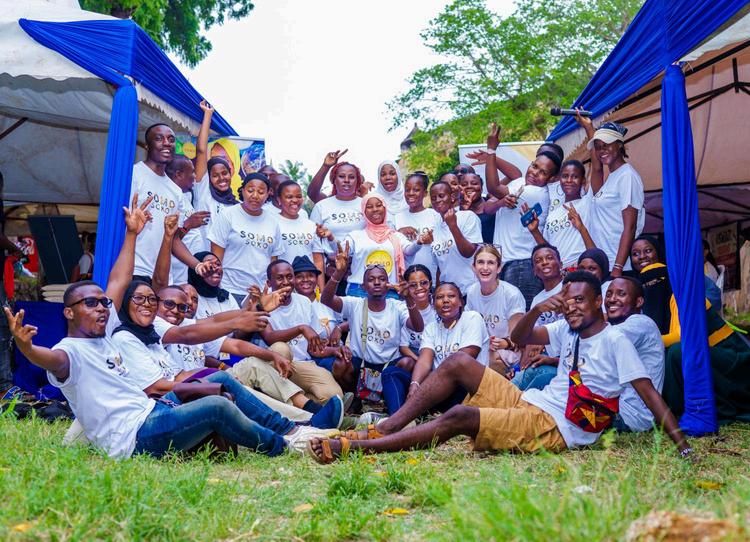
Somo Africa, an organization based in Kenya, is utilizing technology to change the game for SMEs looking to take control of their finances and business management. Their core recordkeeping tool, DigiKua, is available on USSD and WhatsApp and “helps entrepreneurs track business data, qualify for financing, and build alternative credit scores for investors.” This accessible tool, which can be used with limited Internet access and on basic mobile phones, helps SMEs formalize their finances and businesses, opening up opportunities for funding and market access.
This organization supports entrepreneurs in multiple stages of their journeys, too: on the Somo Invest platform, users can share business plans and financial data directly with potential funders and partners. DigiSomo, a self-paced learning platform, and Somo Academy, a mentorship program, both support small businesses in community- and skill-building.

EaziCred is supporting small businesses overcome financial exclusion in Nigeria, where the team writes that out of over 37 million SMEs in the country, “less than 5% have access to formal credit due to lack of credit history, rigid collateral requirements, and high financial fraud risks.” In order to open up financial access for SMEs, EaziCred uses real business data not traditional credit scores — to judge if a business is lend-worthy. Through their data-driven model that was designed for small businesses, with small businesses, even a business with no formal financial history can get access to a loan.
EaziCred also helps entrepreneurs hone their financial literacy through free sessions on how to improve credit worthiness, how to budget, and more. The organization has brought in experts in fintech to host sessions on fraud prevention, customer engagement, etc.

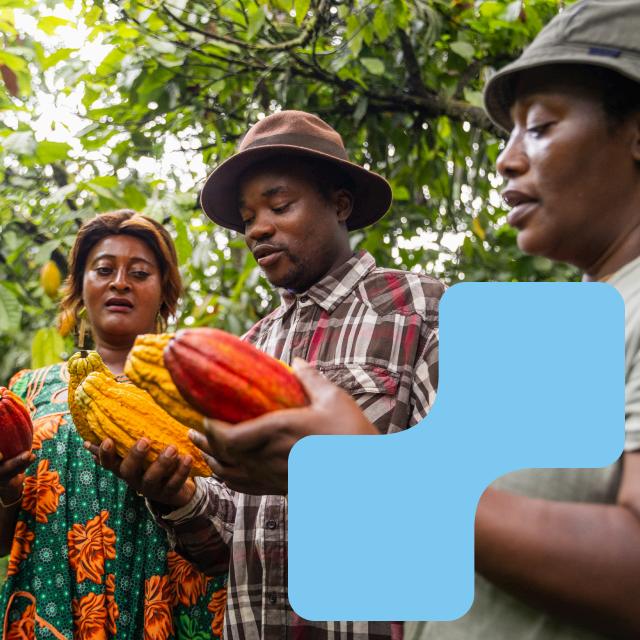
Climate change and environmental degradation cast an inescapable shadow over so many small businesses and their work. Many small businesses, whether they are farmers, fishers, waste collectors, or climate entrepreneurs, depend directly on healthy ecosystems to sustain their operations. When climate change disrupts natural cycles, pollutes resources, or diminishes biodiversity, it doesn’t just harm the environment; it destabilizes local economies and the livelihoods of entire communities. Conversely, when we support small businesses to adapt and thrive, even in times of climate uncertainty, we are also strengthening sustainable practices, reducing waste, and reinforcing the stewardship of natural resources.
From organizations that provide new technologies to farmers who make their living from the land to initiatives that support fishers whose catches are rapidly decreasing due to overfishing and pollution, small business ecosystem builders are helping small businesses adapt to current environmental situations. In this way, investing in SMEs and investing in environmental resilience go hand in hand.

Association of Sociobioeconomy Businesses of the Amazon (ASSOBIO) is an organization based in Brazil that works with small and medium-sized sociobioeconomy businesses - businesses that are based on the use of natural resources, in this case from the Amazon. ASSOBIO notes that these organizations are particularly susceptible to climate change: “Small and medium-sized businesses rely directly on natural cycles to sustain production, and climate variations can severely impact supply chains, causing raw material shortages, increased costs, and commercial difficulties.”
Thus, ASSOBIO supports sociobioeconomy businesses through a membership program: 75 member businesses can gain connections to qualified markets, participate in one of ASSOBIO’s 12 working groups on issues like innovation and exports, and access free legal and communications resources.

Waste to Worth Indonesia is helping small businesses grapple with climate change, with a focus in supporting resource collectors, or waste pickers –individuals who sort through trash and are “[a] key yet often overlooked part of the recycling ecosystem.” Resource collectors help keep waste out of landfills and oceans, which is a burgeoning problem in Indonesia – the application states that “over 3.2 million tons of plastic waste [ends] up in the ocean each year.” But these individuals often face societal stigma, lack social protection, and don’t have many opportunities to upskill or move upward.
Waste to Worth addresses resource collectors’ needs by providing them with social protection: health insurance, work accident insurance, and life insurance. The organization also provides workshops on business skills and entrepreneurship and provides vouchers to resource collectors that they can trade in for goods like groceries, thus helping resource collectors step into their power and have their work legitimized.

Each changemaker’s personal lives and experiences clearly inform their work and enable them to create solutions from a knowledgeable, insider vantage point. In community development leveraged by business growth, personal experience is as valuable as data and technical expertise. The “who” and the “why” behind a project often determine the strength of the “how.”
Changemakers who draw from their own histories bring a depth of understanding that cannot be replicated by outside analysis alone.

And when changemakers pair that perspective with a commitment to inner work building self-awareness and resilience the result is not only more empathetic leadership but also programs that resonate more deeply with the communities they aim to serve.

Ibrahim founded HERVEG.05, an initiative that supports agripreneurs in Tanzania through peer support and ideation groups, trainings, and a tool for putting away savings. Ibrahim grew up farming the same land as the agripreneurs he now supports through HERVEG.05, and he has intimate knowledge on how to connect with farming communities.
Because of Ibrahim’s lived experience as a farmer, he deeply understood the struggles of other agripreneurs and the odds they were up against. He worked with community members to design programming that would best suit their needs and approached the problem from a place of personal experience, which has only helped the organization grow.
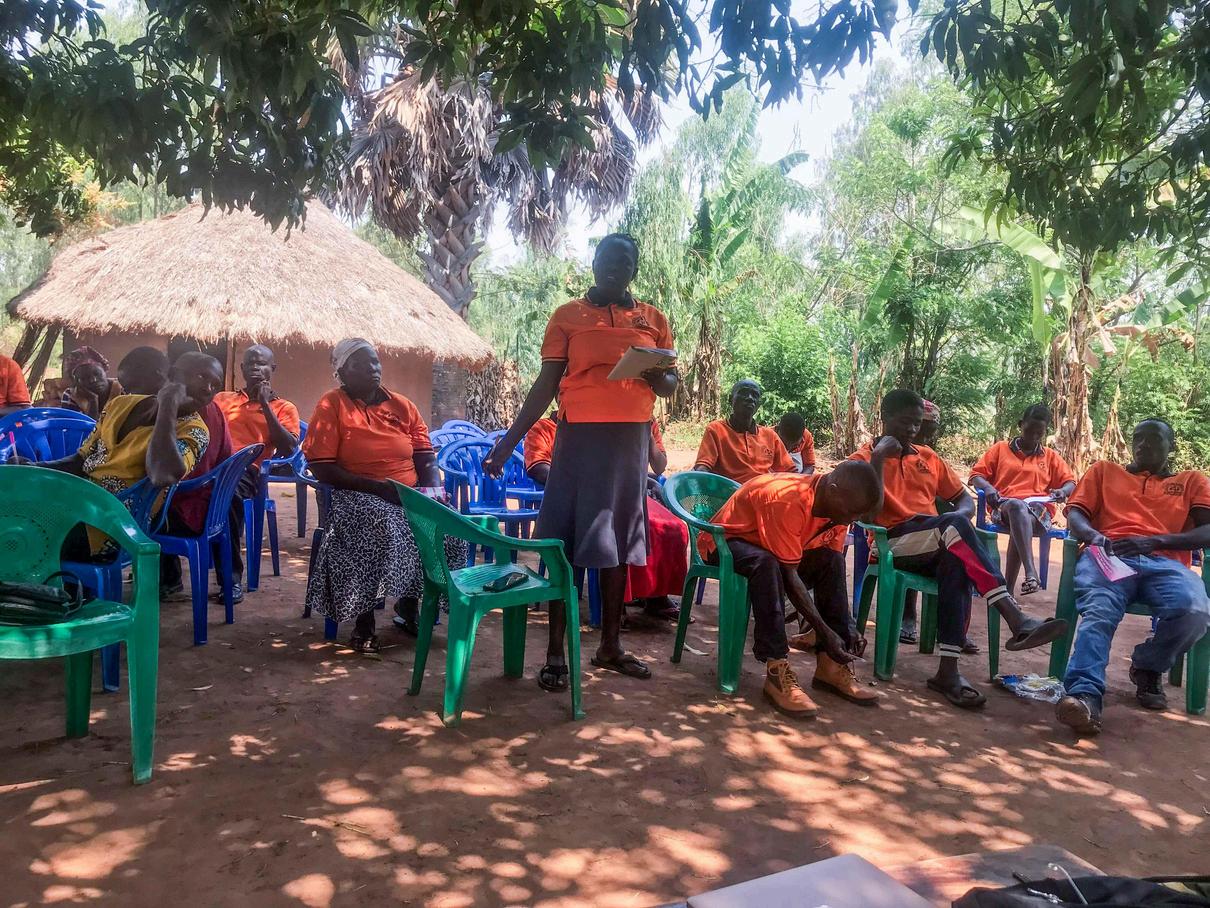
Francis, Founder of Resilience from Within, grew up in the Acholi Sub-region of northern Uganda, a place that is enduring lasting psychosocial and developmental effects from internal displacement because of “the terror of the Lord’s Resistance Army during 1986 –2006.” Francis states that many people are engaged in subsistence farming without access to upskilling or training, and the resulting “skills gap, often compounded by trauma affecting risk-taking and collaboration, severely hampers their ability to establish businesses and gain meaningful economic independence.”
Francis intimately knows about the barriers that individuals in the region face because of his lived experience – but he also knows and sees firsthand that there’s incredible strength in these communities. Resilience from Within works first on mindfulness, building trust amongst community members and helping them strengthen their emotional resilience. The organization then works with participants to identify challenges in the lives of community members and come up with a community-owned social enterprise, like a newly-constructed maize mill that created 20 jobs.
To learn more about The Power of Local Challenge, click here or visit https://www.changemakers.com/en/challenges/powerofl ocal.
For an in-depth article on which this booklet was based, visit the Ashoka Changemakers Medium blog by clicking here or going to https://medium.com/change-maker.
Thank you to all of the Challenge applicants, finalists, and Winners for everything you do to support small businesses and local communities!
The Power of Local Challenge was a collaboration between Prudential Financial and Ashoka Changemakers. Thank you to both teams for your hard work!
Thank you to the publication team behind the article and the booklet - Isabela Carvalho and Ana Popovich.




